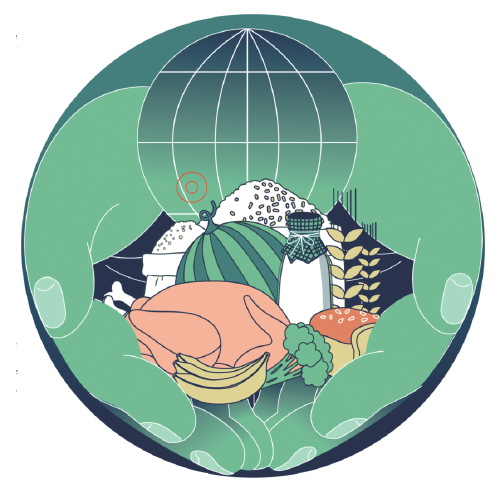Sri Lanka crisis exposes urgency to feed world
By Bjorn Lomborg | CHINA DAILY | Updated: 2022-07-14 07:09

A global food crisis is looming, so policymakers everywhere need to think hard about how to make food cheaper and more plentiful. That requires making a commitment to produce more fertilizers and better seeds, maximize the potential offered by genetic modification and abandon the rich world's obsession with organics.
The Russia-Ukraine conflict has impacted the production, supply and availability of food because the two countries account for more than a quarter of global wheat exports and huge quantities of barley, corn and vegetable oil. On top of punishing climate policies and the lingering impacts of the COVID-19 pandemic, prices of fertilizers, and oil and gas are soaring, and food prices have climbed 61 percent over the past two years.
The conflict has exposed some harsh truths. One is that Europe-which proclaims to be a green energy trailblazer-is highly reliant on Russian gas, especially when the sun is not shining or the wind is not blowing. The conflict has reaffirmed the basic reality that fossil fuels remain crucial for the vast majority of global needs. And the emerging food crisis has revealed another harsh truth: organic farming cannot feed the world; instead, it could worsen future crises.
For long simply a fashionable trend for the world's 1 percent, environmental activists have been peddling the beguiling idea that organic farming can solve hunger. The European Union is pushing for increasing organic farming threefold by 2030, while a majority of Germans actually think organic farming can help feed the world.
But research shows organic farming produces much less food than conventional farming per hectare. Organic farming requires farmers to rotate soil out of production for pasture, fallow or cover crops, reducing its effectiveness. In fact, organic farming produces between a quarter and half less food than conventional, science-driven agriculture.
This not only makes organic food more expensive, but it means that organic farmers would need much more land to feed the same number of people as today-possibly almost twice the area. Given that agriculture currently uses 40 percent of Earth's ice-free land, switching to organics would mean destroying large swathes of nature for less effective production.
The catastrophe unfolding in Sri Lanka provides a sobering lesson. The government last year enforced a full transition to organic farming, appointing "organic farming gurus", including some who claimed dubious links between agricultural chemicals and health problems, as agricultural advisers. Despite extravagant claims that organic methods could produce comparable yields to conventional farming, the policy produced nothing but misery, with some food prices quintupling.
Sri Lanka had been self-sufficient in rice production for decades, but tragically has now been forced to import $450 million worth of rice. Tea, the nation's primary export crop and source of foreign exchange, was devastated, with economic losses estimated at $425 million. Before the country spiraled downward toward brutal violence and political resignations, the government was forced to offer $200 million in compensation to farmers and $149 million in subsidies.
Sri Lanka's organic experiment failed fundamentally because of one simple fact: it does not have enough land to replace synthetic nitrogen fertilizer with animal manure. To shift to organics and keep production, it would need five to seven times more manure than its total manure today.
Synthetic nitrogen fertilizers, mostly made with natural gas, are a modern miracle, crucial for feeding the world. Largely thanks to such fertilizers, agricultural outputs were tripled in the past half a century, as the human population doubled. Artificial fertilizers and modern farming inputs are the reason why the number of people working on farms has been slashed in every rich country, freeing people for other productive occupations.
In fact, one dirty secret of organic farming is that, in rich countries, the vast majority of existing organic crops depend on imported nitrogen laundered from animal manure, which ultimately comes from fossil fuel fertilizers used for conventional farming.
Without those inputs, if a country-or the world-were to go entirely organic, nitrogen scarcity would quickly become disastrous, just like we saw in Sri Lanka. Research shows going organic globally can only feed about half the current world population. Organic farming will lead to more expensive, scarcer food for fewer people, while gobbling up more nature.
To sustainably feed the world and withstand future global shocks, we need to produce food that is better and cheaper. And history shows the best way to achieve that is by improving seeds, including by using genetic modification, along with expanding irrigation, and increasing fertilizer and pesticide production. This will allow us to produce more food, curb prices, alleviate hunger and save nature.
The author is president of the Copenhagen Consensus and author of False Alarm. The views don't necessarily reflect those of China Daily.
If you have a specific expertise, or would like to share your thought about our stories, then send us your writings at opinion@chinadaily.com.cn, and comment@chinadaily.com.cn.
























